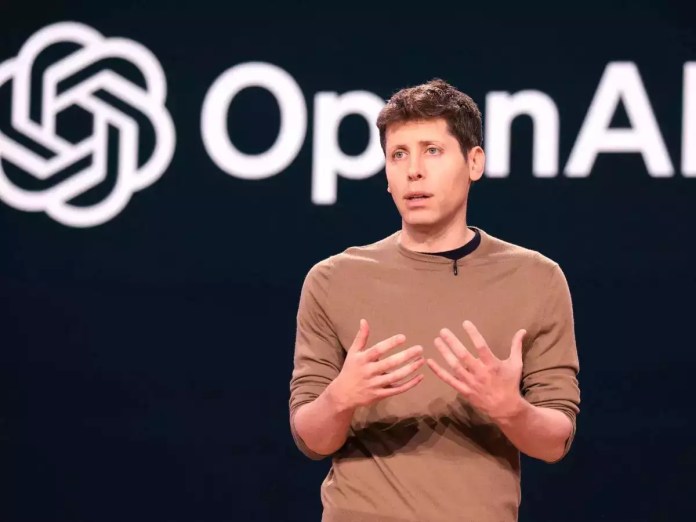- His steadfast advocacy for the transformative potential of AI spotlights both the revolutionary benefits and the significant challenges that lie ahead.
- The potential for AI to “totally” eliminate entire employment sectors raises urgent questions about economic displacement, social equity, and the future of work.
Sam Altman, the CEO of OpenAI, continues to project a vision of a future profoundly shaped by artificial intelligence, where AI systems dominate various sectors, reshape the labour market, and influence global leadership.
His recent remarks at the Capital Framework for Large Banks conference at the Federal Reserve Board of Governors in Washington reiterated long-standing predictions about the transformative power of AI, stirring both intrigue and scepticism among industry observers.
Altman has established himself as a prominent, albeit controversial, prophet of AI’s potential. Despite criticism and ridicule from segments of the tech community and beyond, he persists in articulating a future where AI drives unprecedented changes in employment and service delivery.
Exceeding human capabilities
A central theme of his discourse is the displacement of certain job categories, particularly roles in customer support.
Altman confidently proclaimed that AI has already supplanted human involvement in many customer service interactions, describing AI as a “super-smart, capable person” that answers calls seamlessly, without the frustrations traditionally associated with phone trees or transfers. This characterisation underscores his belief that AI systems not only match but exceed human capabilities in efficiency and accuracy in these domains.
Healthcare is another focal point in Altman’s vision of AI’s ascendancy. He highlighted the recent announcement by Microsoft of an AI diagnostic system purportedly superior to human doctors in identifying complex health conditions.
Altman expressed optimism that AI tools like ChatGPT can function as highly effective diagnosticians, ostensibly better than most human practitioners worldwide. However, he tempered this claim with caution, acknowledging the importance of human oversight.
Studies have demonstrated that AI chatbots remain vulnerable to manipulation, sometimes disseminating false or misleading medical advice with a veneer of credibility. Altman’s acknowledgment of these limitations reflects an awareness of the ethical and practical challenges inherent in deploying AI in critical fields such as medicine.
Intensifying competition
The narrative of AI’s rapid progress and its impact on talent mobility within the tech sector further complicates the landscape. OpenAI has recently experienced a notable exodus of top researchers to Meta, Mark Zuckerberg’s tech conglomerate, which is channeling resources into its AI superintelligence initiative known as Meta Superintelligence Labs.
This shift indicates the intensifying competition among leading firms to dominate the next frontier of AI development, underscoring the strategic importance and high stakes of AI innovation.
Altman’s vision is compelling for its ambitious scope, yet it is also fraught with complexities and contentious implications. The potential for AI to “totally” eliminate entire employment sectors raises urgent questions about economic displacement, social equity, and the future of work.
Meanwhile, the prospect of AI systems advising or even directing heads of state gestures toward a profound shift in governance and decision-making processes, inviting debate about authority, accountability, and human agency.
Discover more from TechChannel News
Subscribe to get the latest posts sent to your email.




